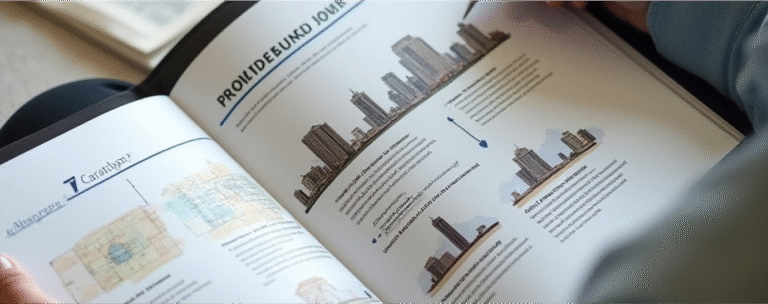- Home
- Uncategorized
- How to Buy Property in Dubai from India: Complete Guide 2025
Introduction

Dubai has emerged as a top destination for global investors, and how to buy property in dubai from india is now a searched query among Indian buyers. With investor-friendly policies, high rental yields, and attractive residency schemes, invest in Dubai real estate has never been more appealing. This guide will walk you step by step through buying property in Dubai from India, sprinkled with key insights and LSI terms like off‑plan, freehold zones, mortgage financing, and Golden Visa to enrich your blog's scope.
How to Buy Property in Dubai from India
Process of Buying Property in Dubai for Indian Citizens – Step-by-Step Guide
The process of how to buy property in Dubai from India is simple but requires careful documentation, legal verification, and financial planning. Here’s a clear step-by-step guide:
1. Define Your Requirements
Start by identifying the purpose of the purchase — investment, rental income, holiday home, or long-term settlement.
Decide the type of property (apartment, villa, townhouse) and shortlist preferred areas like Dubai Marina, Downtown Dubai, or JVC.
Factor in budget, expected rental yields, developer reputation, and property appreciation potential.
2. Find a RERA-Certified Real Estate Agent
It's advisable to work with a professionally certified real estate agent to ensure a smooth property purchase in Dubai. They assist with finding the right property, arranging site visits (virtual or physical), negotiating prices, and handling paperwork. Ensure the agent is officially licensed by the Real Estate Regulatory Agency (RERA) before proceeding.
3. Arrange Financing (If Required)
If you’re not paying fully in cash, consider applying for a mortgage.
Non-Resident Indians (NRIs) can access mortgage facilities from UAE banks, usually covering 50% to 60% of the property's purchase price.
Get a pre-approval letter from the bank to know your borrowing capacity and interest rate.
Some developers also provide post-handover payment schemes, particularly for off-plan projects.
4. Make an Offer to the Seller
After selecting a property, submit a formal offer through your agent. Negotiations may take place, and once the seller accepts the price, proceed to the next step.
5. Sign the Memorandum of Understanding (MoU)
Both parties sign an MoU detailing the sale terms, including final price, payment schedule, and handover date.The buyer is generally required to pay a 10% deposit at this stage of the transaction. It’s advisable to have the MoU reviewed by a legal advisor.
6. Obtain NOC and Conduct Valuation
If you're buying a ready property, the developer must issue a No Objection Certificate (NOC), confirming no dues are pending on the property.
If you're financing the purchase through a mortgage, the bank will also carry out a valuation to confirm the property’s worth.
7. Complete Ownership Transfer at the Dubai Land Department (DLD)
After receiving the No Objection Certificate (NOC), both the buyer and seller must visit the Dubai Land Department to officially transfer the property title. This step includes submitting the necessary documents, paying applicable fees, and registering the property under the buyer’s name.
8. Complete Final Payment
After the property is registered, the remaining payment is made to the seller or bank (in the case of mortgage disbursement). From this point, the property legally belongs to you.
Why Dubai Real Estate Attracts Indian Investors

Tax‑free investment landscape
The tax-free structure in Dubai, including zero income, capital gains, and property taxes, makes it highly favorable for real estate investors.
High rental yields & capital appreciation
Rental yields in Dubai often range from 6% to 9%, far above metro Indian cities’ rates (~2–4%) . Coupled with increasing property values, returns are attractive.
Freehold ownership as non-residents
Foreign nationals—including Indians—can fully own freehold properties in designated zones like Palm Jumeirah, Dubai Marina, and Downtown Dubai.
Golden Visa eligibility
With no income tax, capital gains tax, or property tax, Dubai stands out as an attractive destination for individuals looking to invest in its real estate market.
Locale & infrastructure
Modern lifestyle, global connectivity, and proximity to India (just 3 hours away) make it ideal for families and holiday homes .
Step-by-Step Guide for Indians to Purchase Property in Dubai
1. Define Your Investment Objective
Prior to making any purchase, clearly identify the objective behind your investment. Are you planning for long-term rental income, capital appreciation, personal use, or a future retirement home? Defining your objectives will help shape decisions around budget, preferred location, and the type of property to pursue. It also helps in deciding whether to choose an off-plan or ready property. A well-defined objective is the foundation of a successful Dubai real estate investment from India, ensuring that each decision aligns with your financial goals and risk profile.
2. Research Freehold Zones & Property Types
Dubai offers designated freehold zones where foreigners, including Indians, can legally own ation potential. This understanding enables you to match your selection with your overall investment objectives.Decide whether you're looking for an apartment, villa, or townhouse, and whether it's a ready property or off-plan under construction. Each zone has its own pros and cons in terms of rental yield and appreciation potential
3. Connect with RERA‑Accredited Agents
Partnering with a Real Estate Regulatory Agency (RERA) registered agent ensures a legal, smooth, and professional buying experience. These agents help you shortlist properties, negotiate prices, and handle paperwork. They also offer valuable market insights and updates on new project launches—making them essential for anyone pursuing Dubai real estate investment from India. Always verify the agent’s license number and track record before proceeding, as a trustworthy advisor can safeguard your investment from fraud, delays, and overpricing.
4. Financing Your Dubai Purchase
Indian investors can choose between full cash payments or mortgage financing through UAE banks. NRIs are eligible for up to 50-60% of the property value as a loan, provided they meet income and credit score requirements. Alternatively, many developers offer post-handover payment plans, especially for off-plan properties. Remember to factor in exchange rates and RBI’s Liberalised Remittance Scheme (LRS) limits.
5. MoU & Initial Deposit
Once you finalize a property, the next step is signing a Memorandum of Understanding (MoU). This agreement outlines the terms and conditions of the purchase between buyer and seller. A 10% deposit is generally required at this stage to reserve the unit. The MoU is legally binding, so review it carefully and consult a legal advisor if needed. This step is a crucial part of buying property in Dubai for Indian investors, as it protects both parties and helps prevent last-minute price changes or cancellations.
6. NOC and Transfer at DLD
The No Objection Certificate (NOC) is obtained from the developer, confirming that there are no outstanding dues on the property. After this, both parties meet at the Dubai Land Department (DLD) to finalize the transfer. You'll pay the 4% registration fee and other charges, and the title deed will be issued in your name. This legal step secures your ownership rights officially. Ensure all payments and documents are ready in advance to avoid delays.
7. Residency & Golden Visa
Investing over AED 750,000 in property may qualify you for a two-year residency visa in Dubai. Properties valued at AED 2 million or more can qualify you for the 10-year Golden Visa. For those buying property in Dubai for Indian residency or long-term planning, this visa offers multiple benefits such as sponsoring family members, opening bank accounts, and exploring long-term business opportunities in the UAE. Applying for a visa also enhances your credibility with local banks and authorities, making it a strong incentive for global mobility or retirement abroad.
8. Post‑Purchase: Property Management
After acquiring the property, decide how you plan to manage it, especially if you reside in India. Many investors hire professional property management companies in Dubai to handle tenant relations, maintenance, and rent collection. Such services help maintain the property's condition and ensure adherence to legal requirements. Regular inspections, service charge payments, and insurance are all part of post-purchase upkeep. Choosing the right management firm can maximize returns and minimize hassles.
Avoid These Common Mistakes

Skipping due diligence on developer history, project delivery timelines, and title clarity
Ignoring regulatory and cross-border tax issues. and cross-border
Foregoing market comparisons and ROI projections.
Overleveraging with mortgages without factoring in interest + VAT.
Financing Options (3 Routes)
Cash – simplest and sometimes gives negotiation power.
Dubai Mortgages – NRIs get 50–60% LTV on ready homes; developers may offer flexible plans for off‑plan
Off‑plan Instalment Plans – Off-plan installment plans allow buyers to make scheduled payments throughout the property's construction phase.
Golden Visa: Benefits & Eligibility
2‑year visa: property investment ≥ AED 750,000
10‑year visa: investment ≥ AED 2 million Additionally, UAE launched talent-based Golden Visas for skilled Indians—separate from property
Bonus Tip: Indian Property Expos in India
Property exhibitions held in cities such as Mumbai, Delhi, and Gurgaon showcase developers, consultants, and visa experts—beneficial for those exploring Dubai real estate investment from India.
Final Tips for Buying from India
Do your due diligence: verify the developer's track record, ensure the title is clear, and review the project’s handover timeline.
Use trusted advisors: RERA‑registered agents, lawyers, and mortgage brokers are invaluable.
Plan finance & remittances: Keep within LRS limits, choose the best mortgage option.
Prepare for property management: Take into account expenses like agent commissions and ongoing maintenance fees.
Understand legalities: Complete documentation for title deed, visa, and transfers.
Conclusion
Mastering how to buy property in Dubai from India means aligning your investment strategy with market dynamics and legal frameworks. Whether you aim to buy property in Dubai for rental income, capital appreciation, or long-term residency, Dubai’s tax-free environment, high rental yields, and supportive visa policies make it a top choice.
By following this step-by-step guide—defining objectives, researching freehold zones, coordinating with agents, exploring financing, and completing legal processes—Indians can confidently invest in Dubai real estate from India.






